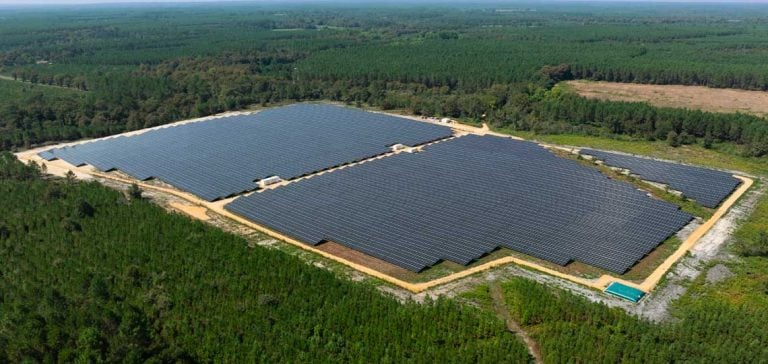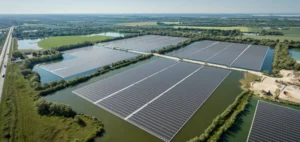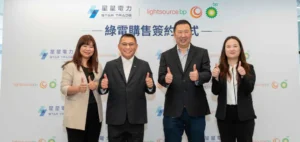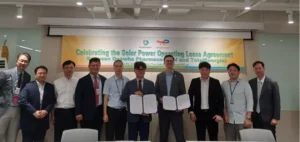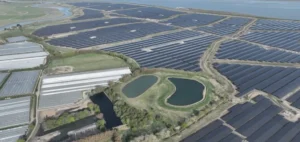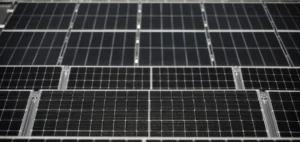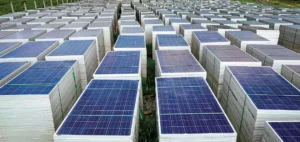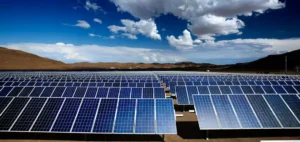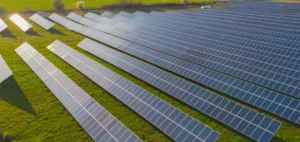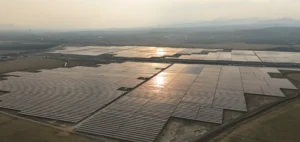The town of Campet-et-Lamolère, located in the Landes department, recently inaugurated a new photovoltaic plant, an ambitious project that demonstrates local commitment to the energy transition. This project was carried out thanks to a collaboration between Corsica Sole, the family owning the Château de Campet, and the town of Campet-et-Lamolère.
The solar plant, which covers an area of 9.7 hectares, can produce 18.8 GWh of electricity annually, which corresponds to the energy consumption of more than 5,000 households. This production of renewable energy will not only power households but also strengthen the region’s energy independence.
Corsica Sole, as an independent solar energy producer and a leader in energy storage in Europe, plays a key role in this project. With a workforce of 130 employees, the company continues to develop its network of electricity production plants throughout France. The Campet-et-Lamolère plant was commissioned after construction work began in 2023 and was completed during the summer of 2024.
A sustainable and responsible project
This project illustrates the desire to revitalize a region affected by the Klaus storm in 2009. The land, which had been devastated, is finding a new purpose through solar energy production. The revenues generated by this plant will be used to fund the maintenance and restoration of the Château de Campet, an architectural and historical heritage site.
Anne-Loraine de Pins, owner of the Château de Campet, stated: “This plant is much more than an energy project. It embodies our desire to preserve the family heritage while embracing modernity. This investment in green energy contributes to the conservation of this emblematic site and the future of our region.”
A partnership with the steel industry
Another innovative aspect of this project is the signing of a Corporate Power Purchase Agreement (CPPA) between Corsica Sole and a major player in the steel industry. This 20-year contract guarantees the company a supply of renewable electricity while supporting its decarbonation efforts.
Anthony Bonello, Director of Operations at Corsica Sole, emphasized that “solar energy remains the cheapest of all energies to date.” This partnership opens new perspectives for collaboration between renewable energy producers and industrial sectors.
Commitment to the environment
Corsica Sole is also committed to adhering to strict environmental standards. A reforestation project is underway to compensate for the 9.7 hectares occupied by the plant. In parallel, 10 hectares of forest will be planted in the Pyrenees to preserve local biodiversity. An environmental monitoring program will be conducted to ensure the ecological balance of the site.
Jean-Marie Esquié, councilor at the Campet-et-Lamolère town hall, expressed his satisfaction: “This project perfectly embodies the synergy between energy transition, heritage preservation, and local development. Thanks to the involvement of local stakeholders, we are proud to see our town at the forefront of decarbonation.”
Strengthening ties with the local community
The Campet-et-Lamolère photovoltaic plant is not just an energy project; it is also rooted in local life. Educational visits have been organized in collaboration with the Geloux primary school to raise students’ awareness of the challenges of the energy transition. Visits for local residents and associations have also been planned, allowing the community to better understand the benefits of this initiative.
Romain Buisine, Regional Director at Corsica Sole, expressed his pride: “This project is a true source of pride for our teams. It embodies the essence of our commitment: combining technological innovation, energy transition, and respect for the territories.”

